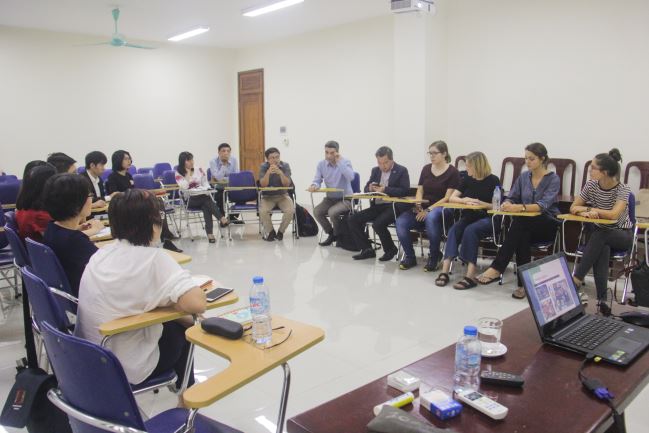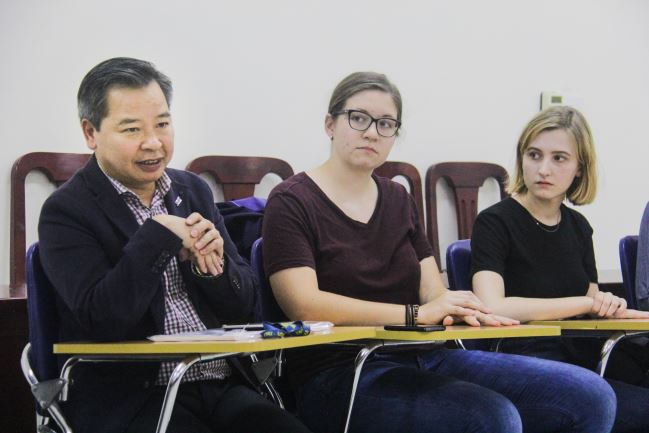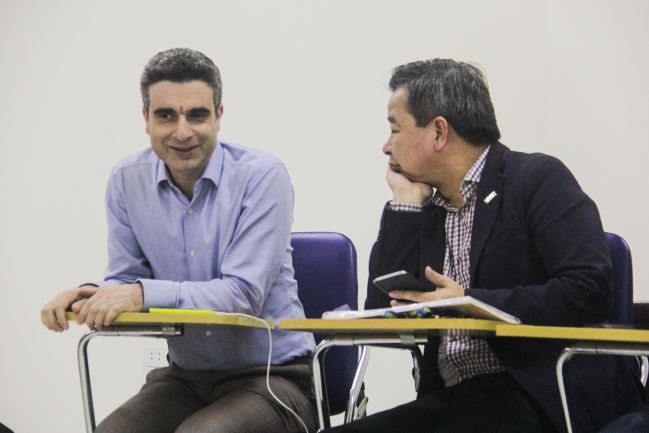LBCE No. 16 had the presence of Prof. Dr. Pham Quang Minh (Principal of the School) and Assoc. Prof. Dr. Tran Thi Minh Hoa (Vice Principal of the School) along with a number of international professors and students.
LBCE members shared their views on: what is service culture, how important is service culture in universities, the reflection aspects of service culture, the limitations of service culture in universities today and suggestions for improving service quality...
The comments mentioned the strengths of the University of Social Sciences and Humanities such as its long tradition, the confirmed quality of its research and training activities, its qualified and dedicated teaching staff, etc. However, the University is currently facing challenges due to competition from many younger universities with advantages in financial resources, facilities, quality of services, investment in reaching learners, etc.

In that context, improving the service culture in the school is an important solution to attract more good students to study at the school. In recent times, the school has paid more and more attention to building a service culture, reflected in many innovations such as: adjusting the curriculum more flexibly to the needs of students, simplifying procedures, putting students at the center of training plans, being more open and friendly in communicating with students...

Professor Pham Quang Minh shares about service culture
Foreign professors and students share a different perspective when they think that the service culture in universities in each country is always different due to cultural differences. The cultural diversity in each country makes each place have its own criteria and standards in serving students. However, in the context of strong development of science and technology and globalization as today, universities need to pay special attention to factors of network technology, online services, application of management software, learning and research software for students...

LBCE No. 16 continues to bring experiences and opportunities to use English for members in presentations, sharing opinions, debating and finding common ground in solving practical problems surrounding university activities.
Author:Thanh Ha - Do Luong
Newer news
Older news